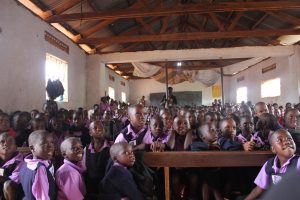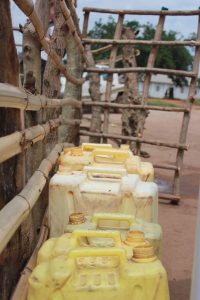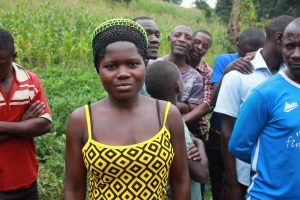One month before I left for Uganda, I called my parents to share the news: “Hey, remember how I’m going to Austin for that internship this summer? Well now they’re letting me go to Uganda first!!” They knew that I was excited about the chance to work with Water to Thrive (W2T), a nonprofit that builds wells in sub-Saharan Africa. However, they were somewhat concerned about the two-weeks in the African bush with such limited communication. I’d already been studying in Europe for five months, so they had been looking forward to my return to the U.S. On this call, I didn’t tell them that I’d already booked my flights to Uganda, nor that I didn’t know if I’d get any funding. I had made up my mind to go. And nothing, not worried parents, nor homesickness, nor the crazy logistics of getting there, would stop me.
My role on this trip was mainly as an observer — to gain some first-hand knowledge of the culture and various water projects. Upon returning to the states, I would be doing research and data analyses on the impact of W2T’s partner organizations and drafting a grant proposal and newsletters. So I had a role or a job to do — sort of. But as I stepped outside the Entebbe airport on my first day, anxious and sleep deprived, and not sure if I had the right VISA, I felt mostly like an outsider, and a spectacle. Robert, the driver who picked me up from the airport, laughed and told me that he’d immediately recognized me. My colleagues had told him to look for a “young woman with long hair who looks like it’s her first time in Africa.” And I did look that way: like a tourist. Travel writer Paul Theroux writes that “Travelers don’t know where they’re going; tourists don’t know where they’ve been.” I like this idea: while tourism is about arriving at a carefully packaged destination, travel is about the detours, the ongoing journey, and paying attention along the way. It’s not about arriving.
In Uganda, I traveled with Susanne (the W2T director, aka my boss) and Gashaw (W2T’s Ethiopian hydrogeologist). Susanne called our trip a “vision” trip, to distinguish it from the many mission groups that take trips to build wells in Africa. While our visit was short term, W2T’s commitment to the communities it serves is long term and community based, and always works through local community organizations. But unlike Gashaw and Susanne, I didn’t have any real skills to offer the communities. While they analyzed water projects and worked out funding with partner organizations, my biggest role on this trip was simply to watch and listen. I could collect the stories and learn what these people had to teach me. And in those two weeks of travel –– of bumpy car rides on roads built for cattle and bicycles, of celebrating and singing and impromptu dance lessons –– I learned that it’s not just about the water, not just about jerry can contamination and borehole depths, but also about history, and race, and what is enough.
Armed with a camera, a journal, and my hiking boots, I spent ten wide-eyed days trying to take in everything around me. At the very first well we visited, I met a 23-year-old woman named Grace (two years older than me), who told me
that she was thankful that her four young children now didn’t get sick so often. In another village, one of the elders who spoke a little English told us that the old women were “crawling on the ground in happiness” now that they had water within easy walking distance. I chased kids as they shouted “Muzungu, muzungu!” (white person), who would
“accidentally” let me catch them and then shriek with laughter as I scooped them up. Yet other villages would explain that their new well still frequently ran dry from the sheer volume of people using it. They wondered if we might work on a second well to better sustain their needs. I stood with villagers and listened to humbling and heartbreaking prayers. They asked God to bless the water he had brought them and to remember those villages who still need a water source.
I have more questions than ever, about race and privilege and responsibility. Questions that I’m only beginning to be able to articulate, questions laced with uneasiness and discomfort. But these questions feel big and important and relevant, and I’m excited to keep exploring and learning about these themes as I continue my work here.


